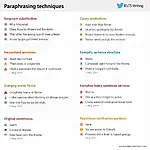The IELTS Speaking test can be a daunting experience, especially when faced with unexpected questions. However, with the right strategies and mindset, you can tackle these curveballs with confidence and ease. This comprehensive guide will explore effective techniques for handling unexpected questions naturally, helping you boost your IELTS Speaking score and overall performance.
Understanding the Nature of Unexpected Questions
Before diving into strategies, it’s crucial to understand why unexpected questions arise in the IELTS Speaking test. Examiners often introduce these questions to:
- Assess your ability to think on your feet
- Evaluate your language flexibility
- Test your capacity to maintain a natural conversation
- Gauge your genuine knowledge and opinions on various topics
Recognizing the purpose behind these questions can help alleviate anxiety and prepare you mentally for the challenge.
Strategies for Handling Unexpected Questions
1. Stay Calm and Composed
The first and most crucial step in handling unexpected questions is to remain calm. Panic can cloud your thinking and affect your language production.
How to stay calm during IELTS speaking test
- Take a deep breath
- Remind yourself that it’s okay not to have an immediate answer
- Use filler phrases to buy time (e.g., “That’s an interesting question…”)
2. Active Listening and Clarification
Sometimes, unexpected questions may seem confusing at first. Don’t hesitate to:
- Ask for clarification if needed
- Repeat the question to ensure you understood correctly
- Use phrases like “If I understand correctly, you’re asking about…”
This approach not only helps you understand the question better but also gives you extra time to formulate your response.
3. Buy Time Strategically
When faced with an unexpected question, it’s perfectly acceptable to take a moment to gather your thoughts. Use natural phrases to buy time:
- “Let me think about that for a moment…”
- “That’s a thought-provoking question…”
- “I’ve never considered that before, but…”
These phrases not only give you time to think but also demonstrate your ability to engage with the question naturally.
4. Structure Your Response
Even if the question catches you off guard, try to structure your answer:
- Acknowledge the question
- State your main point or opinion
- Provide an explanation or example
- Conclude or summarize your thoughts
This structure helps you organize your thoughts quickly and present a coherent response.
5. Use Personal Experiences and Examples
When in doubt, draw from your personal experiences. This approach:
- Makes your answer more authentic
- Provides concrete details to support your points
- Demonstrates your ability to relate the question to real-life situations
For instance, if asked about an unfamiliar topic like space exploration, you could say:
“While I’m not an expert on space exploration, I remember being fascinated by a documentary I watched about the Mars rover mission. It made me realize the incredible technological advancements we’ve made…”
6. Redirect to Familiar Territory
If you’re completely stumped by a question, try to redirect it to a related topic you’re more comfortable discussing. For example:
- Question: “What do you think about the future of cryptocurrency?”
- Response: “While I’m not very familiar with cryptocurrency specifically, I can speak about the importance of financial literacy in today’s digital age…”
This technique demonstrates your ability to think critically and maintain a relevant conversation.
7. Be Honest About Limitations
It’s okay to admit when you don’t have extensive knowledge about a topic. Honesty is better than fabricating information. You can say:
- “I’m not entirely familiar with that topic, but based on what I know…”
- “While I don’t have in-depth knowledge about this, I think…”
This approach shows integrity and can lead to a more genuine conversation.
 IELTS candidate admitting limited knowledge on a topic
IELTS candidate admitting limited knowledge on a topic
8. Practice Impromptu Speaking
To improve your ability to handle unexpected questions, regularly practice impromptu speaking:
- Use random topic generators
- Ask friends or family to quiz you on various subjects
- Participate in speaking clubs or language exchange programs
The more you practice, the more comfortable you’ll become with thinking on your feet.
Leveraging Body Language and Tone
Remember that communication is not just about words. Your body language and tone play crucial roles in conveying confidence and naturalness:
- Maintain eye contact with the examiner
- Use natural hand gestures to emphasize points
- Speak with a confident and steady tone
- Smile and show enthusiasm, even when discussing challenging topics
These non-verbal cues can significantly enhance the overall impression you make during the test.
How to handle follow-up questions
Conclusion
Handling unexpected questions naturally in the IELTS Speaking test is a skill that can be developed with practice and the right mindset. By staying calm, using strategic techniques to buy time, structuring your responses, and drawing from personal experiences, you can turn these challenging moments into opportunities to showcase your language skills and adaptability. Remember, the key is to remain confident and authentic in your responses. With these strategies in your toolkit, you’ll be well-prepared to tackle any unexpected question that comes your way, ultimately boosting your IELTS Speaking score and overall performance.
FAQs About Handling Unexpected Questions in IELTS Speaking
-
What if I completely blank out when asked an unexpected question?
If you find yourself at a loss, take a deep breath and politely ask for a moment to think. You can say, “That’s an interesting question. Could I have a moment to gather my thoughts?” This gives you time to compose yourself and formulate a response. -
Is it okay to change the subject if I’m not comfortable with the unexpected question?
While it’s best to address the question directly, you can gently steer the conversation towards a related topic you’re more familiar with. However, ensure your response is still relevant to the original question. -
How long should I speak when answering an unexpected question?
Aim for a balanced response, typically 2-3 minutes. Provide enough detail to demonstrate your language skills, but avoid rambling or going off-topic. -
Can I use humor when responding to unexpected questions?
Light humor can be effective if used appropriately and naturally. However, be cautious as humor can be culturally sensitive and may not always translate well in a test setting. -
What if the examiner interrupts me while I’m answering an unexpected question?
Examiner interruptions are normal and often indicate they have enough information. Politely stop speaking and wait for the next question or instruction.


